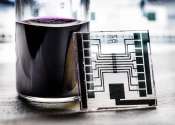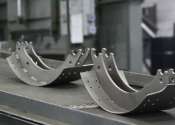Sweden's fastest supercomputer for AI is now online
Berzelius is now Sweden's fastest supercomputer for AI and machine learning, and has been installed in the National Supercomputer Centre at Linköping University. A donation of EUR 29.5 million from the Knut and Alice Wallenberg ...
Mar 23, 2021
0
74









